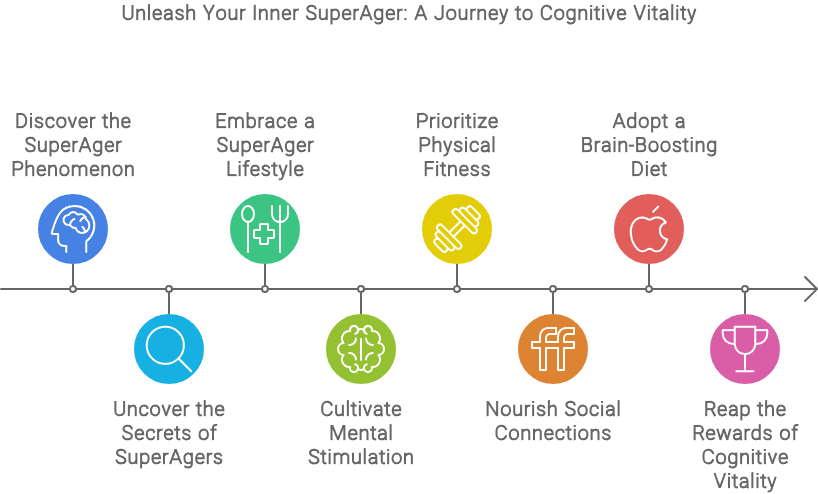
Image Source: unsplash
The Transformative Power of Intuitive Eating
Intuitive eating is a non-diet approach to Diet and Nutrition that encourages individuals to trust their body and its hunger cues, rather than conforming to restrictive diets or rules. This transformative practice promotes a healthier relationship with food by seeking a deeper understanding and respect for the body’s natural instincts. By recognizing and responding to hunger and fullness cues, intuitive eating helps individuals form a healthier relationship with food that is free of guilt and anxiety.
Research has shown that intuitive eating is associated with numerous benefits. It has been found to be linked to fewer maladaptive eating behaviors, increased fruit and vegetable intake, and greater psychological well-being. Learning to honor hunger and fullness cues helps prevent overeating or undereating, promoting a balanced relationship with food.
According to Mascha Davis, M.P.H., R.D.N., intuitive eating is a weight-neutral approach to food and nutrition that helps people stop dieting, heal their relationship with food, and practice health-promoting self-care. By embracing intuitive eating, individuals can break free from the cycle of dieting, yo-yo weight fluctuations, and disordered eating patterns.
Intuitive eating empowers individuals to listen to their bodies’ needs and make choices based on internal cues rather than external influences. It allows for a more mindful approach to nourishment, fostering a positive mindset towards food. By trusting their body’s natural instincts, individuals can experience the transformative power of intuitive eating in improving overall well-being.
Understanding the Foundations of Intuitive Eating:
Tuning in with Your Hunger
Intuitive eating is all about tuning in with your hunger and recognizing when your body needs nourishment. It encourages individuals to listen to their internal cues rather than relying on external factors such as strict meal schedules or calorie counting. By paying attention to hunger signals, individuals can better understand their body’s unique needs.
Research has shown that encouraging yourself to eat, even when you don’t feel hungry, can have positive effects on cognitive function, physical performance, and overall well-being. Nourishing your body regularly ensures that it receives the energy and nutrients it requires for optimal functioning.
Building a Healthy Relationship with Food
Food is more than just sustenance; it is intertwined with emotions, cultures, relationships, and meaningful life experiences. However, in a society dominated by diet culture and unrealistic beauty standards, building and maintaining a healthy relationship with food can be challenging.
Engaging in self-compassion is crucial when developing a healthy relationship with food. A 2021 study published in The Journal of Psychology found that both underweight and obese individuals report lower self-compassion, well-being, and mindful eating behavior. By practicing self-compassion, individuals can unlearn food-related judgments and criticisms and foster a deeper connection with their bodies.
Mindful eating is another powerful tool for building a healthy relationship with food. It involves paying attention to the sensory experience of eating, such as the taste, texture, and aroma of food. This practice helps individuals become more attuned to their body’s hunger and fullness cues while savoring each bite without judgment.
Instead of demonizing certain food groups and glamorizing others, consider how all types of foods offer unique benefits and can fit into your diet. Each person’s nutritional needs vary based on factors such as age, activity level, and health conditions. Registered Dietitian Nutritionist Eden Davis emphasizes the importance of focusing on variety, balance, and gentle nutrition when enhancing overall nutrition.
By embracing self-compassion and practicing mindful eating techniques while incorporating gentle nutrition principles into your diet choices, you can build a healthier relationship with food that promotes overall well-being.
- Food is more than sustenance; it is intertwined with emotions, cultures, relationships, and meaningful life experiences.
- Building and maintaining a healthy relationship with food can be challenging in a society dominated by diet culture and unrealistic beauty standards.
- A 2021 study found that both underweight and obese individuals report lower self-compassion, well-being, and mindful eating behavior.
- Practicing self-compassion helps individuals unlearn food-related judgments and criticisms and foster a deeper connection with their bodies.
- Mindful eating involves paying attention to the sensory experience of eating and becoming more attuned to hunger and fullness cues without judgment.
- It helps individuals savor each bite and develop a healthier relationship with food.
- Instead of demonizing certain food groups and glamorizing others, considering the unique benefits of all types of foods is important.
- Nutritional needs vary based on factors such as age, activity level, and health conditions.
- Focusing on variety, balance, and gentle nutrition enhances overall nutrition.
- By embracing self-compassion, practicing mindful eating, and incorporating gentle nutrition principles, individuals can build a healthier relationship with food that promotes overall well-being.
Navigating the World of Nutrition
Rejecting Diet Culture and Embracing Variety
Rejecting diet culture and learning about nutrition from qualified sources is essential in understanding the importance of variety and moderation in our diets. By doing so, individuals can make informed choices based on their unique needs, rather than succumbing to societal pressures or fad diets.
Embracing variety in our food choices allows us to obtain a wide range of nutrients necessary for optimal health. For example, consumption of whole grains has been found to lower the risk of cancer. By incorporating different types of complete grains into our meals, such as brown rice or whole-wheat pasta, we can enhance the nutritional value of our diet while enjoying diverse flavors and textures.
Registered Dietitian Nutritionist Julie Pace emphasizes the importance of embracing a mindful, holistic, anti-diet approach to nutrition. This involves focusing on incorporating foods that nourish our bodies and empower us to feel our best. By rejecting diet culture’s rigid rules and restrictions, we can develop a healthier relationship with food that promotes overall well-being.
The Role of Nutrition in Overall Health
Intuitive eaters understand that food plays a vital role in overall health. They consume a variety of foods that make their bodies feel good while being mindful of hunger and fullness cues. In intuitive eating, there are no off-limit foods, and emotions are not numbed by food.
By shifting our mindset away from categorizing foods as “good” or “bad,” we can develop a more balanced approach to nutrition. Food is seen as fuel for physical function and overall health rather than something to be judged or restricted. This allows individuals to enjoy a wide range of foods without guilt or anxiety.
Understanding the role of nutrition in overall health empowers individuals to prioritize nourishing their bodies with wholesome foods while still savoring indulgences in moderation. It encourages a sustainable approach to eating that focuses on long-term well-being rather than short-term results.
Practical Strategies for a Balanced Diet
Gentle Nutrition and Nourishing Your Body
Gentle nutrition is an important principle of intuitive eating, focusing on incorporating foods that nourish the body and empower individuals to feel their best. It involves making choices that prioritize overall well-being rather than strict rules or restrictions.
Exploring nutrient-dense foods is a key aspect of gentle nutrition. These foods are rich in vitamins, minerals, and other beneficial compounds that support optimal health. By incorporating nutrient-dense options such as fruits, vegetables, whole grains, lean proteins, and healthy fats into meals and snacks, individuals can enhance their nutritional intake.
Experimenting with cooking methods can also add variety and enjoyment to meals while preserving the nutritional value of ingredients. Grilling, steaming, roasting, or sautéing are all great ways to prepare food while maintaining its nutrient content.
Practicing mindfulness during meals is another strategy for incorporating gentle nutrition. This involves paying attention to the sensory experience of eating, savoring each bite, and being present in the moment. By slowing down and fully engaging with our food, we can better recognize hunger cues and satisfaction levels.
5 Strategies for an Anti-Diet Approach to Nutrition
- Eat breakfast: Skipping breakfast has been associated with cardiovascular and all-cause mortality. Starting your day with a balanced meal can help prevent overeating later in the day and reduce the risk of heart disease, high blood pressure, type 2 diabetes, and cancer.
- Try simple swaps: Making simple swaps can make favorite foods healthier without sacrificing taste. For example, using natural sweeteners instead of refined sugar or opting for whole grains instead of refined grains adds nutritional value to meals.
- Combine macronutrients when snacking: Pairing carbohydrates with protein or protein with fat when snacking promotes satiety and sustained energy levels. Some examples include crackers with cheese, apple slices with peanut butter, or fruit combined with nuts.
- Honor food cravings: Instead of restricting or ignoring cravings altogether, honor them by finding ways to incorporate them into a balanced diet. Focus on variety, balance, and gentle nutrition to satisfy cravings while still nourishing your body.
- Add nutrient-packed foods to meals: Boost overall nutrition by adding nutrient-packed foods to your meals. This could include adding leafy greens to salads or smoothies or incorporating colorful vegetables into stir-fries or pasta dishes.
Registered Dietitian Nutritionist Christine Milmine emphasizes the importance of not getting stuck on one meal or day when working on adding more nutrient-dense foods into your diet. Instead, focus on incorporating longer-lasting healthy habits into your overall eating pattern.
By implementing these practical strategies for a balanced diet based on intuitive eating principles, individuals can nourish their bodies while enjoying a wide variety of delicious foods.
| Strategy | Description | Examples |
|---|---|---|
| Eat breakfast | Prevent overeating and reduce health risks by starting with a balanced meal. | – |
| Try simple swaps | Make favorite foods healthier with better ingredient choices. | Natural sweeteners, whole grains |
| Combine macronutrients when snacking | Pair carbs with protein or fat for better satiety and energy. | Crackers with cheese, apple with peanut butter |
| Honor food cravings | Incorporate cravings in a balanced way, focusing on variety and nutrition. | – |
| Add nutrient-packed foods to meals | Enhance meals with foods rich in nutrients for better overall nutrition. | Leafy greens in salads, vegetables in stir-fries |
The Transformative Power of Intuitive Eating
Intuitive eating is a powerful approach for breaking free from dieting cycles, yo-yo weight fluctuations, and healing from disordered eating and toxic diet culture. It offers numerous potential health benefits, both physically and psychologically. By practicing intuitive eating, individuals can practice health-promoting self-care and develop a positive relationship with food.
Improving the quality of one’s diet doesn’t need to be done on a strict timeline. It’s important to give yourself grace and accept that some days will have better nutrition than others. The focus should be on incorporating longer-lasting healthy habits into your overall eating pattern.
Intuitive eating allows individuals to let go of rigid rules and restrictions surrounding food. Instead, it encourages them to listen to their bodies’ cues and make choices based on what feels nourishing and satisfying in the moment. This approach helps individuals reconnect with their body’s natural wisdom, leading to improved overall well-being.
By embracing intuitive eating as a journey rather than a destination, individuals can experience transformative changes in their relationship with food. They can let go of guilt and shame associated with certain foods or eating patterns and instead focus on nourishing their bodies with compassion and respect.
Registered Dietitian Catherine Karnatz emphasizes the importance of incorporating longer-lasting healthy habits into our overall eating pattern. This means focusing on sustainable changes rather than quick fixes or drastic measures. By adopting intuitive eating principles, individuals can gradually improve the quality of their diet while enjoying flexibility and balance.
Embracing the Journey of Intuitive Eating
Intuitive eating is a transformative approach to food and nourishment that allows individuals to trust their body’s natural instincts. By building a healthier relationship with food, practicing self-compassion, and embracing gentle nutrition, individuals can break free from diet culture and experience the transformative power of intuitive eating.
Embracing intuitive eating is a journey of self-discovery and self-care. It involves letting go of external rules and restrictions and instead tuning in to our body’s internal cues. By honoring our hunger and fullness, we can nourish ourselves in a way that feels satisfying and sustainable.
Through intuitive eating, individuals learn to listen to their bodies’ unique needs and preferences. This approach promotes overall well-being by fostering a positive relationship with food, free from guilt or anxiety. It encourages us to view food as nourishment for both our physical and emotional well-being.
As we embark on this journey, it’s important to remember that it is not about perfection or strict adherence to a set of rules. Instead, it’s about finding balance, flexibility, and joy in our eating experiences. By incorporating longer-lasting healthy habits into our overall eating pattern, we can cultivate a positive relationship with food that supports our overall well-being.
In conclusion, embracing intuitive eating empowers individuals to trust their bodies, honor their hunger and fullness cues, and build a healthier relationship with food. It is a journey of self-discovery that leads to improved overall well-being and a positive outlook on nourishment.






